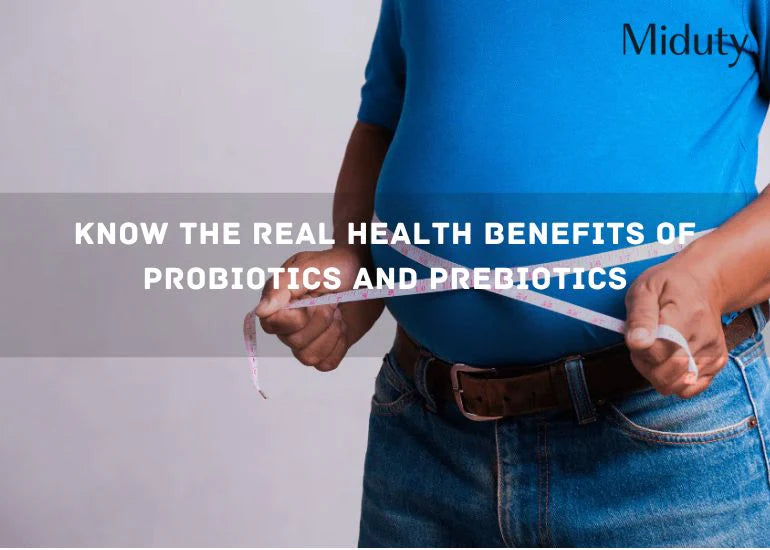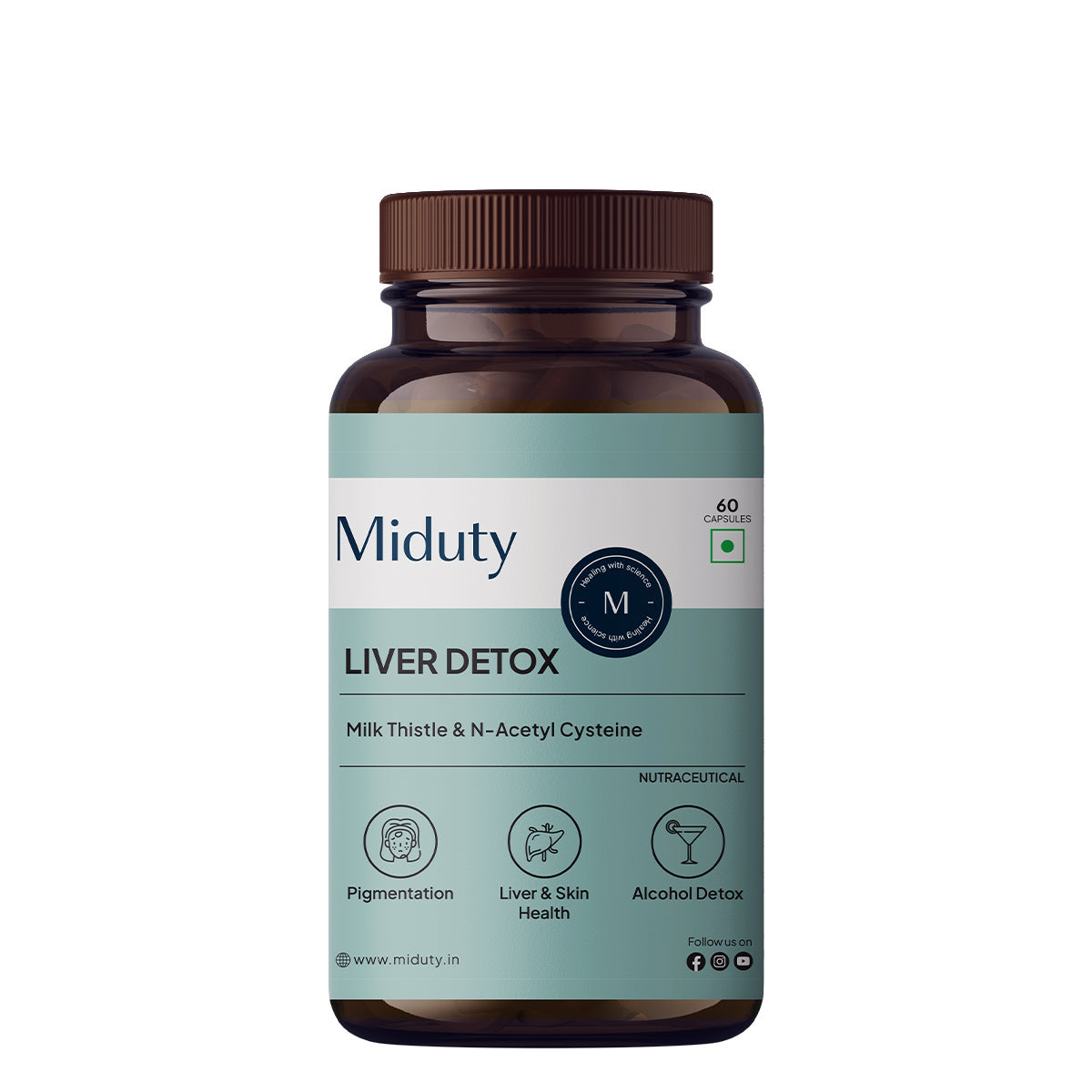
Know The Real Health Benefits of Probiotics and Prebiotics
 Share
Share
Did you know that 80% of your body’s immunity depends on your gut? To improve your gut health, you need to know the real health benefits of probiotics and prebiotics. Here you will learn the benefits of each and an overview of prebiotic vs. probiotic with advice on when to use them.
Health Benefits Of Probiotics
Probiotics are the good bacteria in your gut. They are responsible for maintaining the balance of your intestinal microbiota. The intestinal microbiota is all the microorganisms that inhabit your gastrointestinal tract. When this delicate balance is shifted, a disease can occur. Health benefits of probiotics are numerous. They can help with:
- Obesity
- Insulin resistance and type 2 diabetes
- Liver disease
- Irritable bowel syndrome
- Bacterial infections
- Diarrhea and other gastrointestinal disorders
- Lactose intolerance
- Atopic dermatitis
- Neoplastic diseases
- Cancer treatment side effects
- Autoimmune disease
- Colds and flu
To ensure you have enough probiotic bacteria in your gut, there are certain types of food to include in your diet. These foods are kefir and coconut kefir, sauerkraut and kimchi, kombucha, natto, raw milk yogurt, kvass, apple cider vinegar, salted gherkin pickles, brine-cured olives, tempeh, miso, and raw cheese. This is a diverse list because there are different types of good gut bacteria.
Buy Now Miduty Probiotics and Prebiotics Fiber
Health Benefits Of Prebiotics
Prebiotics are the food for probiotic bacteria. These are food ingredients we don’t digest, known as fructooligosaccharide or FOS. When you eat foods rich with prebiotics, the probiotic bacteria in your gut will grow and multiply. Prebiotic-rich foods are leeks, garlic, jicama root (raw), chicory root, dandelion greens, raw asparagus, Jerusalem artichoke, and resistant starch flours like cassava flour, plantain flour, potato starch, and green banana flour.
Health benefits of prebiotics include an increased number of good bacteria in the colon, increased calcium absorption and fecal weight, and lowered blood lipid levels. Also, the food will move faster through your gastrointestinal tract so you won’t get constipated.
Prebiotic Vs. Probiotic

Both prebiotics and probiotics are essential for our health. These food ingredients work together to help us stay healthy. You can take probiotics to grow their population in your gut, but if there’s no prebiotics that feed them, they won’t last long. So you’ll be in a vicious circle of continually ingesting and losing good bacteria. There are also other problems with probiotics. We mentioned that there are different types of probiotic bacteria.
For example, drinking yogurt every day will not help restore all these types of good bacteria. The same goes for probiotic supplements. You can’t know which type you’re missing, so it’s difficult to say which supplement will bring the most benefits. Moreover, if one type of probiotics are present in a large number in your gut and you keep taking the same kind, your problems can even get worse. That’s where prebiotics come into play. By giving the bacteria in your gut enough food (prebiotics), you can stimulate the growth of the types of bacteria you actually need.
The good guys will multiply and eventually suppress the bad guys (aerobic bacteria), thus restoring a healthy balance. What’s also great about prebiotics is that heat and stomach acid don’t affect them. Unfortunately, probiotics are more delicate, and sometimes they don't even reach your gut as they can be destroyed in your body by heat and stomach acid. Eating fermented foods or popping a probiotic pill will not always do the trick. That’s why it’s better to provide enough food for the good bacteria and allow it to grow and multiply.
When To Take Probiotics
We are not completely dismissing the probiotics and probiotic supplements. They can help repopulate the friendly bacteria when you need a quick fix. Doctors recommend using probiotic supplements if you are or were recently taking antibiotics. Other situations when these are helpful are if your immune system is compromised or if you have an autoimmune disease. When you are traveling and do not have the opportunity to eat healthy prebiotic fiber, its good to take a supplement.
When To Take Prebiotics
Just like you need food every day, so does the friendly bacteria in your gut. It’s best to make sure you eat prebiotic-rich food every day to prevent the growth of the harmful bacteria. You can also take prebiotic supplements, and it’s recommended that you choose the ones that also contain digestive enzymes. As we grow older, our bodies make less and less digestive enzymes so supplementing them can ease digestion and help prevent gastrointestinal problems.
Conclusion
Probiotics are the good bacteria that ensure proper functioning of your digestive system and your immune system. These friendly types of bacteria do all the heavy lifting and fight off the bad bacteria in your gut. The best way to ensure you have enough friendly bacteria in your system to fight off diseases is to feed the good guys with prebiotics. Both probiotics and prebiotics can be found in food or taken as supplements.
The problem with probiotics is that you can’t be sure which type of good bacteria you’re missing, and they can be destroyed in your body by heat and stomach acid. A safer bet is taking prebiotics that feeds different types of good bacteria and letting your body do the rest. You can use prebiotics as a replacement for probiotics, or you can take them together to get the best results. Introduce prebiotics slowly into your diet and let your body adjust to the change.
Probiotic supplements are invaluable during and after taking antibiotics and when the immune system is not working right. If you’re taking probiotic supplements, choose those that can tolerate stomach acid. If you want prebiotic supplements, those with digestive enzymes are best. If you have histamine intolerance, you should avoid yogurt and fermented foods and take prebiotics that feeds specific types of good bacteria that degrade histamine.
Sources
- Probiotics and prebiotics: A brief overview
- Effects of Probiotics, Prebiotics, and Synbiotics on Human Health
- RHR: How to Restore Healthy Gut Flora Over the Long-Term
- Why Yogurt and Probiotics Make You Fat and Foggy
- 7 Reasons to Get Prebiotics in Your Diet — Plus Best Sources
- How to Develop a New Gut for the New Year
- 13 Great Probiotic Foods You Should Be Eating

